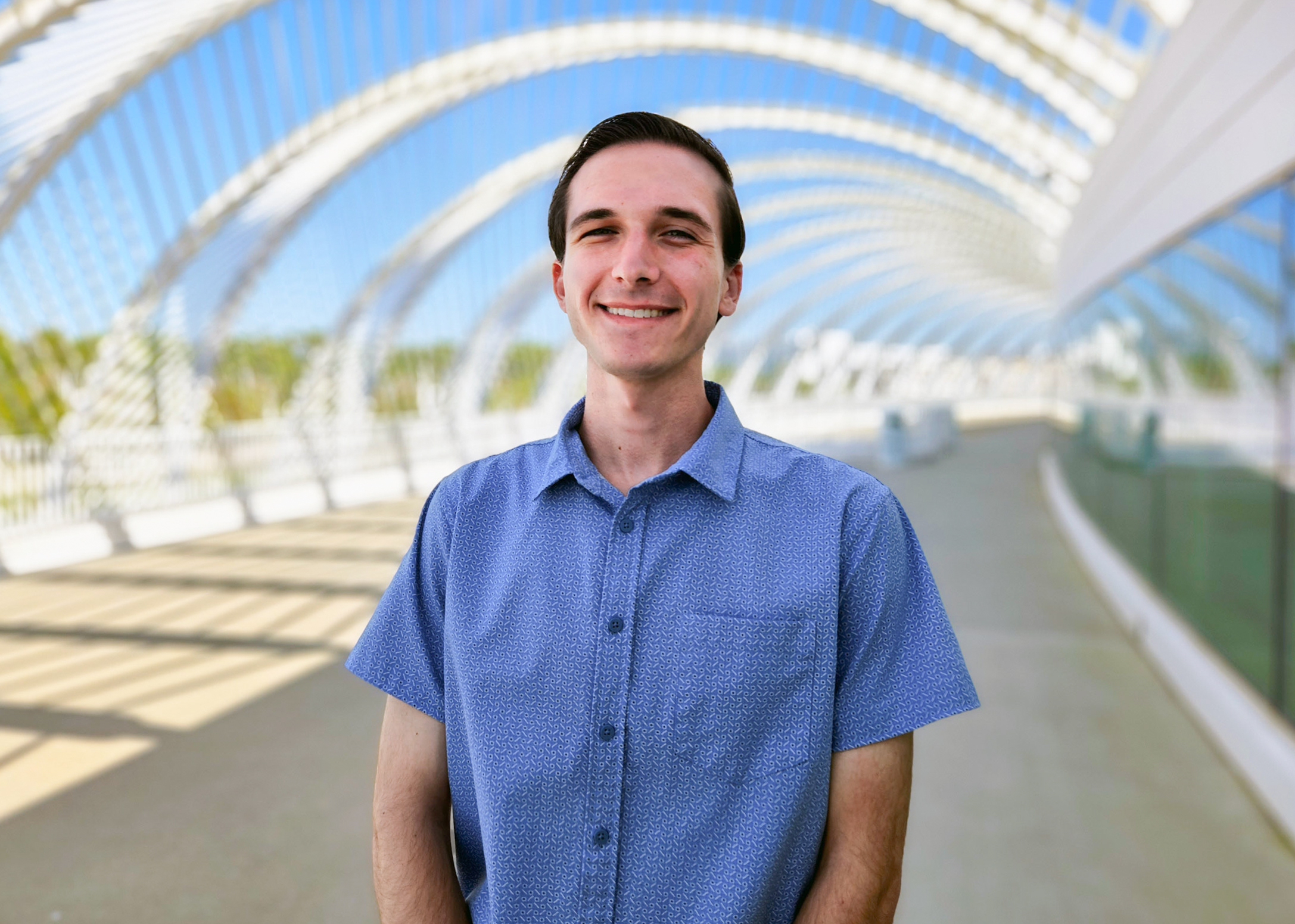
Andrew Wernersbach, a senior majoring in computer science at Florida Polytechnic University, is an Alexander Scholar who has grown a summer internship at Ball Aerospace in Boulder, Colorado, into a full-time position at the company after graduation.
Florida Polytechnic University senior Andrew Wernersbach’s hard work and dedication to his education have resulted in an exceptional job waiting for him at Ball Aerospace after his graduation in May 2024.
The coming position as an engineering associate in Boulder, Colorado, comes after Wernersbach’s strong internship performance with the company that began during the summer of 2023 and continues today.
“It was definitely nice to see they valued my work and me at the company,” said the senior majoring in computer science with a concentration in autonomous systems.
Wernersbach is a graduate of Millennium 6-12 Collegiate Academy in Tamarac, Florida. The path toward his success began with a decision to attend Florida Poly. Armed with an outstanding academic record, Wernersbach was accepted to the prestigious John R. Alexander Scholars Program, a scholarship program that supports exceptionally high-achieving students in reaching their personal and professional goals without taking on the burden of student debt. Each scholar receives a new laptop and a $40,000 scholarship awarded over four years.
“It has definitely given me the financial stability I need to attend the University and not really be hung up on housing or tuition costs,” Wernersbach said. “Being an Alexander Scholar gives me a competitive edge over other people sometimes because I do get to have the title and I get to explain to companies what it is.”
In the future, Wernersbach hopes to work with artificial intelligence to develop something useful for the world.
“The applications of AI are really cool and interesting,” he said. “I don’t make anything as cool as Siri now, but one day I can make something that cool. Even now, the stuff I do is pretty interesting.”
Without collegiate financial worries, Wernersbach has been able to focus on maximizing Florida Poly’s signature small classes with hands-on education. He also has worked as an undergraduate research assistant at the University.
“I’ve been able to closely work with some very good faculty members here and I don’t know if that would have been the same at larger universities,” he said. “I’ve found some great mentors, and they helped me figure out what I want to do in my career.”
At Ball Aerospace, Wernersbach has worked on an object detection system project, developing a way to spot specific large animals in natural areas.
“We were flying a drone over a wildlife sanctuary and detecting tigers,” he said. “Toward the end we were getting some good results and were able to see different areas of land and see that we could identify some wildlife in there.”
The work can one day be part of a conservation effort for detecting endangered species in Africa, he said, but the current work is a proof of concept.
He also has been working on methods to classify plastics in the ocean based on spectrometer data.
“You could eventually send out an aircraft or submarine with spectrometers and they can read where the plastics are so people can go scoop them out,” Wernersbach said. “That can really help clean up the ocean.”
Contact:
Lydia Guzmán
Director of Communications
863-874-8557